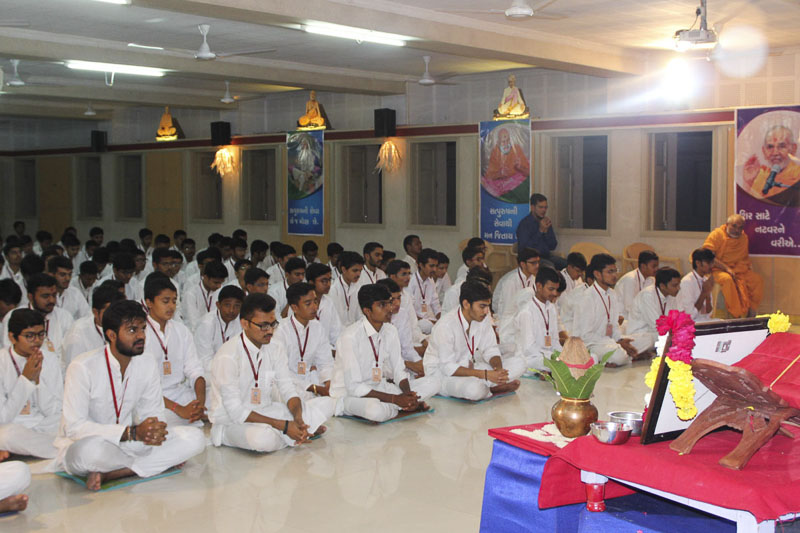YUVAK SABHA

Weekly kishore/yuvak satsang sabha, or youth assemblies, provide an opportunity for youths to engage in a healthy environment with their peers. These assemblies build a base for morality and spirituality in their lives. They introduce complex ideas through interactive mediums, such as skits, debates, and question/answer sessions, which enable youths to voice their opinions and ask questions freely. Sabhas are typically run by youths that have been raised and educated in the same locales, making it easier for them to relate to other youths’ concerns and attitudes. BAPS provides value-based education about the importance of respecting elders, maintaining addiction-free lives, morally acceptable behavior, interacting with peers, and communication skills. Youths are given an opportunity to practically apply their lessons at recitals, festivals, and weekly satsang assemblies. BAPS youth assemblies usually consist of prayer, devotional bhajans, presentations on Hindu dharma or history, followed by a forum to discuss everyday situations and issues, such as with domestic relationships, education, career, negative peer pressure, and communicating with their parents. Assemblies are typically followed by recreational activities for youths to interact in an informal setting. These weekly assemblies help shape the lives of thousands of youths around the world.